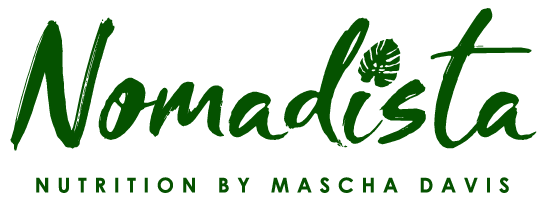Unless you’ve been living under a rock, I'm sure you’ve heard how eating foods with probiotics can be beneficial for gut health. And maybe you’ve even read up on how a healthy gut can impact everything - from your skin, to your digestion and even your mood (hello, gut brain axis)!
BUT - did you know that there is another contributor to gut health that no one seems to be talking about?
Introducing: postbiotics.
Now, before we dive deep into what this gut health secret is, let’s review these definitions:
Probiotics: These are live bacteria naturally present in foods like yogurt, kimchi, fermented veggies, miso, kombucha, and kefir.
Prebiotics: These are short-chain carbohydrates in food that feed the friendly bacteria in your gut. They come from high fiber foods like oats, legumes, berries, asparagus, garlic , and leeks.
In other words, prebiotics feed the probiotic bacteria!
Now that you’ve got those definitions in your back pocket, let's dive into the other member of the “biotic” family.
Postbiotics: are the byproducts of the fermentation process carried out by probiotics. To break it down, when probiotics (live bacteria) feed on prebiotics (fiber-foods), postbiotics are produced.
Most people don’t realize that many probiotics (the good bacteria we talked about before) don’t actually stay in the gut permanently. This is why postbiotics are so important - they are the waste product of probiotics that actually stay in the gut for longer.
Research is now showing that a lot of the positive gut health boosting effects we see from probiotic consumption, is actually due to postbiotics. However, it’s important to note that because this topic is so new, there isn’t a ton of robust research, but here is a short breakdown.
As mentioned above postbiotics are bioactive compounds created during the fermentation process in the gut. However, “postbiotics” is an umbrella term that can include the following compounds: metabolites, short-chain fatty acids (SCFAs), microbial cell fractions, functional proteins, extracellular polysaccharides (EPS), cell lysates, teichoic acid, peptidoglycan-derived muropeptides and pili-type structures.
One type of postbiotics, short chain fatty acids (SCFA) have been shown to potentially help lower inflammatory bowel disease risk and treat diarrhea related to IBS. A specific kind of SCFA, butyrate, is associated with improved gut barrier function, which is important for proper immune response. In terms of health and disease, SCFAs also have been targeted for their therapeutic effects related to autoimmune, allergic and metabolic diseases as well as stress-related disorders.
More research shows that postbiotics are linked to stronger immune systems, particularly in infants.
Postbiotics have also been linked to type 2 diabetes prevention in mice studies. In this study, researchers discovered that postbiotics help to diversify the gut microbiome, which aids in decreasing the risk of developing insulin resistance.
How to Optimize Your Postbiotics:
Since postbiotics are the byproduct of probiotic fermentation, in order to bring more into your microbiome, you’ll want to not only consume foods with probiotics, but also focus on specific strains of probiotics, for specific health outcomes.
For example:
L. acidophilus LB has been shown to be a promising intervention in the treatment of chronic diarrhea
L. pentosus b240 might be effective in the prevention of common cold infections
L. plantarum strains were found to inhibit pathogens and therefore may improve immune response
If you choose to supplement, it’s important to note that not all probiotic supplements are made equal. You’ll want to research how many CFUs (colony forming units) there are and how many different strains of bacteria the product has (hint: more is usually better).
It’s important to speak with a GI doctor and/or dietitian specializing in gut health to determine which supplement is right for you. This document gives additional information on which strains and products may help treat different conditions.
When going for the food-first route, be sure to not only consume probiotic food but also prebiotic fiber foods. WIthout prebiotics, the probiotic bacteria will have nothing to feed on and postbiotics won’t be produced!
The Takeaway:
Everyone's microbiome is different, and there is still more to learn when it comes to knowing all about postbiotics and how they can impact your gut health. But what we do know is that by eating more plants and foods with probiotics, you are increasing the diversity in your gut microbiome - which translates into overall better wellbeing!




